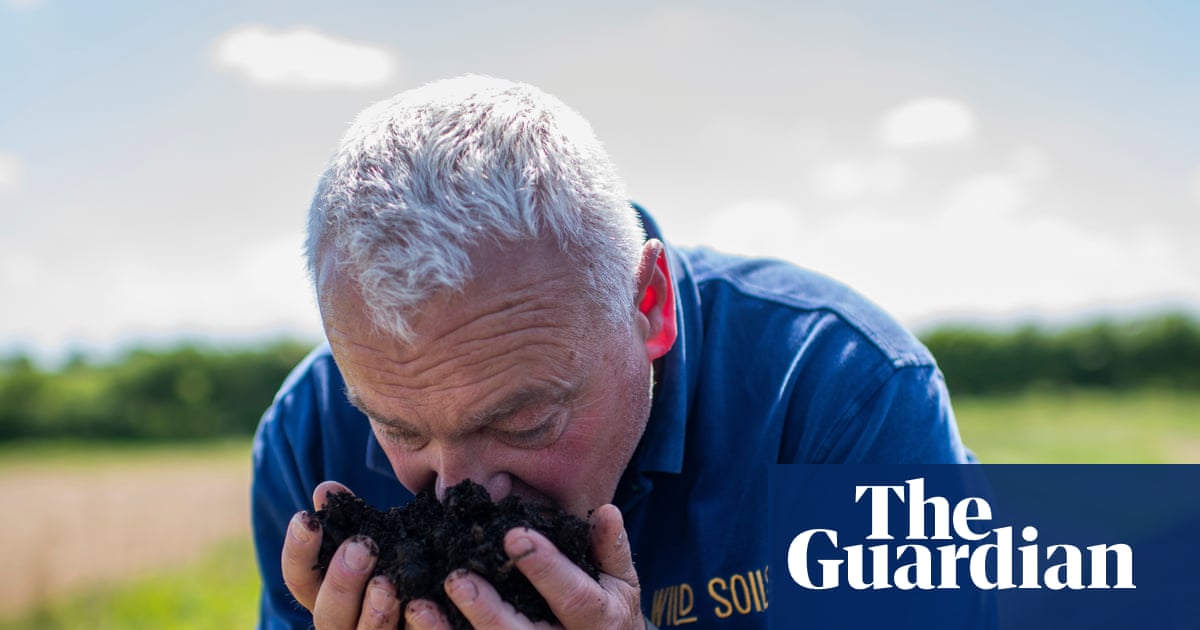
"Padwick, the farm manager at Wild Ken Hill since 2018, is part of a growing movement of farmers taking a deep interest in the microscopic life forms that their livelihoods depend upon. Under this approach to regenerative farming, nurturing diverse soil communities from bacteria and fungi, to microscopic animals and worms is seen as an essential prerequisite for growing healthy foods with minimal or no use of agrochemicals or soil-damaging machinery."
"The stakes could not be higher. Recent estimates show more than 60% of EU agricultural soils are degraded, with around 40% of UK soils similarly damaged. Globally, the UN Food and Agriculture Organization says 90% of the world's topsoils could be at risk by 2050; a crisis intensified by accelerating global heating. All this has implications not just for food security, but biodiversity, water quality, flood mitigation, climate resilience and greenhouse gas emissions."
Nick Padwick examines compost under a microscope on his Norfolk farm and identifies bacteria-feeding nematodes and fungal hyphae. A regenerative farming approach emphasizes nurturing diverse soil communities, from bacteria and fungi to protists and microscopic animals, to build soil structure, nourish plants and control pests naturally. Severe soil degradation affects more than 60% of EU agricultural soils and about 40% of UK soils, with the UN warning 90% of global topsoils could be at risk by 2050. Soil decline threatens food security, biodiversity, water quality, flood mitigation, climate resilience and greenhouse gas emissions.
Read at www.theguardian.com
Unable to calculate read time
Collection
[
|
...
]